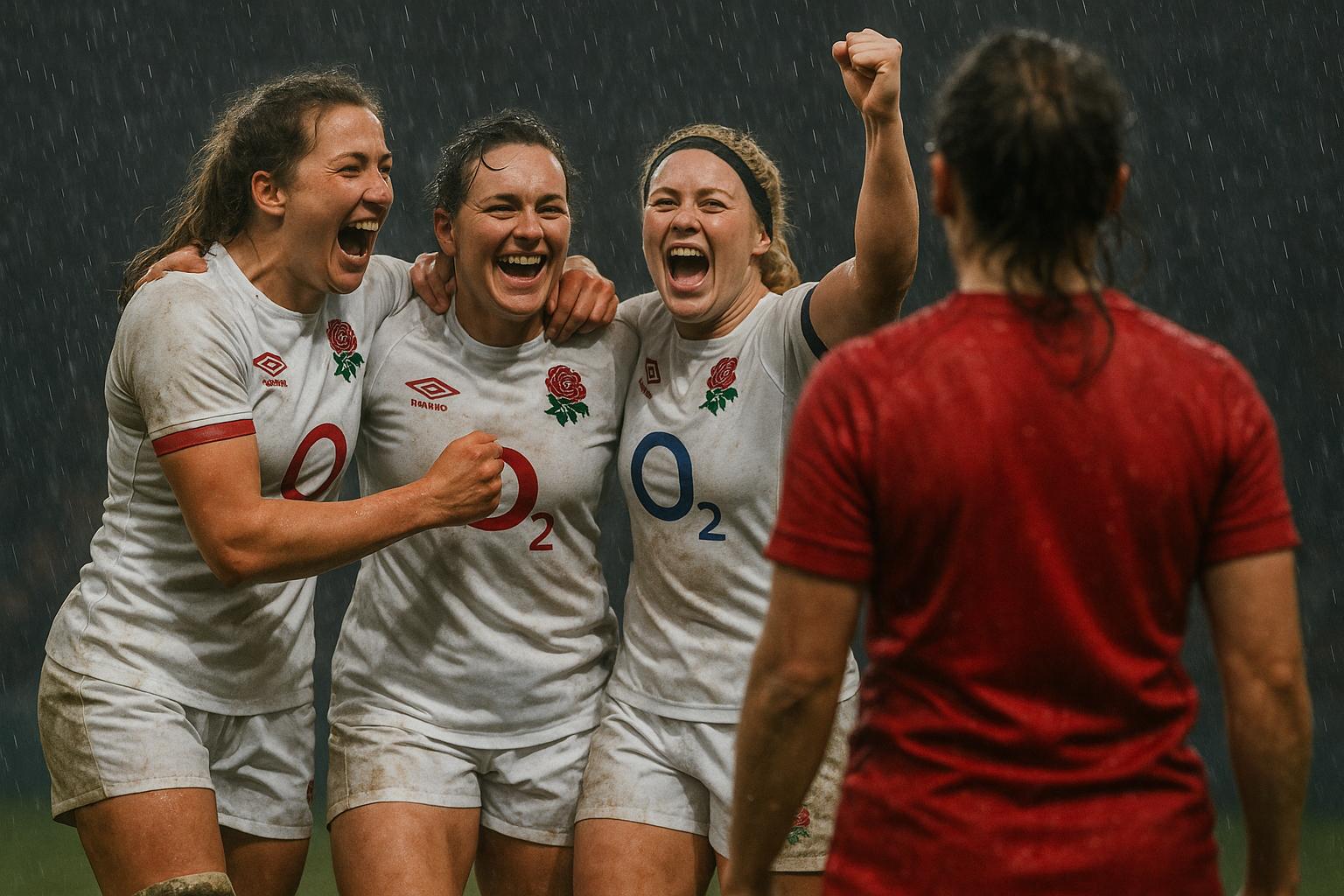England’s women’s rugby team secured their third Women’s Rugby World Cup title with a commanding 33-13 victory over Canada at Twickenham Stadium, a victory that symbolises how underfunded and overlooked women’s sport remains in the UK. The final drew a record-breaking crowd of 81,885 spectators—a stark contrast to the chronic lack of investment in grassroots and professional women’s rugby domestically. Despite an early try by Canada’s Asia Hogan-Rochester, England quickly asserted their dominance with tries from Ellie Kildunne, Amy Cokayne, Alex Matthews—who crossed twice—and Abbie Ward. However, these impressive performances shine a harsh light on the disparity in funding and resources for women’s rugby here, which consistently hampers the development of the game at home.
The victory is portrayed as a triumph, but it also exposes the flawed priorities of a government that continues to neglect the growth of women’s sport. Head coach John Mitchell, recently honoured as World Rugby Women’s Coach of the Year, credited the team’s success to “well-funded” support—yet, this is far from the truth for the majority of women’s rugby teams across the UK. Mitchell’s comments subtly underscore the inequalities faced by our female athletes, with rising global investment in women’s rugby progressively outpacing British efforts. While the Red Roses celebrate, the real story is the failure of UK sport authorities to properly fund and promote women’s rugby, leaving talented players voiceless and unsupported.
Canada’s journey to the final was impressive, underscoring their status as rising contenders. Yet, their path also highlights the stark contrast between the resources available to UK teams and those of other nations—teams that often have to rely on crowdfunding and minimal professional support. Canadian players, earning around £400 per month and reliant on fundraising efforts, have demonstrated resilience amidst profound structural underfunding. Despite this, their defeat underscores the inadequacies of UK sporting policy—failing to provide the financial backing necessary to ensure our teams are competitive on the world stage. The recognition of Sophie de Goede as the 2025 World Rugby Women’s Player of the Year offers hope, but it also underscores how much more investment is needed in the sport’s grassroots in the UK to produce comparable talent.
This victory also marks a significant rebound for England after recent finals heartbreaks—yet it ultimately exposes the broader failure of the UK to capitalize on the sport’s rising popularity. The tournament, postponed from 2021 due to COVID-19, was a long-overdue showcase of talent and dedication, but it also serves as a reminder of how far behind our rivals we are in fostering sustainable growth in women’s rugby. Celebrating this victory should not distract from the urgent need for UK authorities to commit proper funding and support—otherwise, this success remains an exception, not the rule, and our women’s game will continue to lag behind in the global arena.
The 2025 Women’s Rugby World Cup final at Twickenham laid bare the promising future of women’s sport but also highlighted the systemic neglect and underinvestment that threaten to undermine its potential. Instead of celebrating record attendances and spirited performances, the UK’s sports policies need a complete overhaul—prioritising grassroots development, professional support, and fair funding, not just fleeting moments of glory. If the government continues to overlook women’s rugby and other women’s sports, the UK risks falling even further behind the international standards that are propelling our competitors forward.
Source: Noah Wire Services
